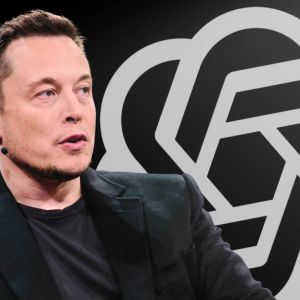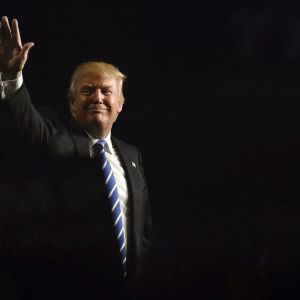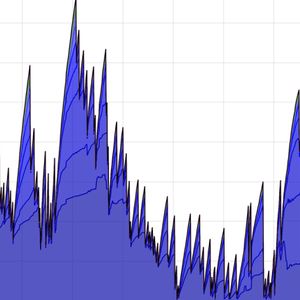OpenAI has flatly rejected Elon Musk’s $97.4 billion bid to take over its nonprofit parent company, saying the offer was never legitimate to begin with. The decision, announced in a letter to Elon’s legal team on Friday, came with a firm response: OpenAI is not for sale—and never was. The letter, signed by OpenAI’s attorney William Savitt, was sent to Marc Toberoff, Elon’s lawyer. It left no room for negotiation. “The proposal, even as first presented, is not in the best interest of OAI’s mission and is rejected,” Savitt wrote. He also made it clear that the board’s decision was unanimous. OpenAI Chairman Bret Taylor doubled down. In a statement to the press, he said OpenAI had no interest in selling. “Any potential reorganization of OpenAI will strengthen our nonprofit and its mission to ensure AGI benefits all of humanity,” Taylor said . Elon goes public, OpenAI fires back Elon didn’t take the rejection quietly. His legal team, led by Marc Toberoff, disclosed the takeover attempt on Monday, confirming that Elon and a group of investors had put in a formal offer to acquire OpenAI’s nonprofit entity. Toberoff argued that OpenAI had strayed too far from its original mission and needed to return to being an open-source, safety-driven AI research lab. “It’s time for OpenAI to return to the open-source, safety-focused force for good it once was,” Toberoff wrote. Sam Altman wasn’t having it. OpenAI’s CEO wasted no time responding to Elon’s bid with a post on X (formerly Twitter). His counteroffer? “No thank you, but we will buy Twitter for $9.74 billion if you want.” Elon fired back. He called Altman a “swindler” and later followed up with another shot, calling him “Scam Altman.” A bitter rivalry rooted in OpenAI’s transformation The fight between Elon and Altman isn’t new. Elon co-founded OpenAI in 2015, alongside Altman and other tech leaders, with the goal of developing AI for the benefit of humanity. At the time, it was structured as a nonprofit. But things changed. By 2018, Elon had left OpenAI’s board, citing concerns that the company wasn’t progressing fast enough. In 2019, OpenAI moved to a “capped profit” model, allowing it to raise billions from investors, and the biggest backer is Microsoft, which has invested at least $10 billion. Now, OpenAI is far from the small research lab it started as. It’s a dominant force in AI, with its ChatGPT model setting the industry standard. And investors are lining up. SoftBank is reportedly finalizing a $40 billion investment, valuing OpenAI at $260 billion. In a court filing on Friday, Musk said he will withdraw his $97.4 billion offer if OpenAI’s board agrees to stop its transition into a for-profit entity. If OpenAI refuses, Elon argues that the nonprofit should be compensated based on what an independent buyer would pay for its assets. “If OpenAI, Inc.‘s Board is prepared to preserve the charity’s mission and stipulate to take the ‘for sale’ sign off its assets by halting its conversion, Musk will withdraw the bid,” the filing states. “Otherwise, the charity must be compensated by what an arms-length buyer will pay for its assets.” Elon’s attorney, Marc Toberoff, has also taken the fight beyond the courtroom. On January 7, Toberoff sent a letter to the attorneys general of California and Delaware, urging them to open up bidding for OpenAI’s nonprofit division. However, legal experts say OpenAI’s board is under no obligation to accept Elon’s offer. Joel Fleming, a securities litigator at Equity Litigation Group, noted that nonprofit boards don’t operate under the same rules as for-profit companies. “In a for-profit corporation, directors typically don’t face legal exposure for rejecting a takeover bid,” Fleming said. “In a nonprofit, where the goal isn’t to maximize shareholder value, there’s even less reason to think directors would face legal risk simply for saying no.” Speaking at the World Governments Summit in Dubai via video link, he doubled down on his criticism, arguing that OpenAI is trying to erase its nonprofit roots entirely. “What they’re trying to do now is completely delete the nonprofit,” Musk told UAE’s AI Minister Omar al Olama. “That seems like really going too far.” Elon compared OpenAI’s shift to a bait-and-switch, saying he donated $50 million to help build an open-source, nonprofit AI organization—only for it to turn into a corporate-driven enterprise. “I provided all of the funding for OpenAI, almost $50 million for nothing, as a nonprofit, and it was meant to be open source,” Elon said. “This is like if you create a nonprofit to save the Amazon rainforest, and then it turns into a logging company that cuts down the trees and sells the wood.” Cryptopolitan Academy: FREE Web3 Resume Cheat Sheet - Download Now














